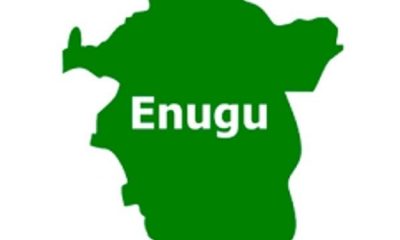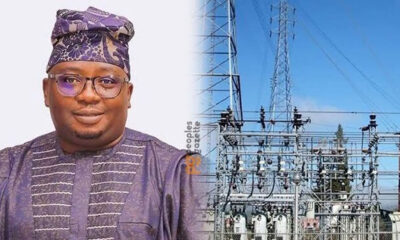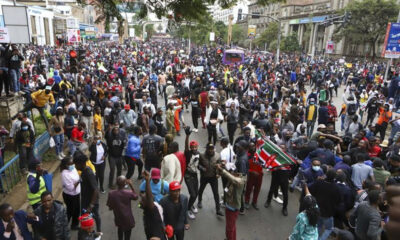Business
FG proposes 5% tax on betting, telecoms services
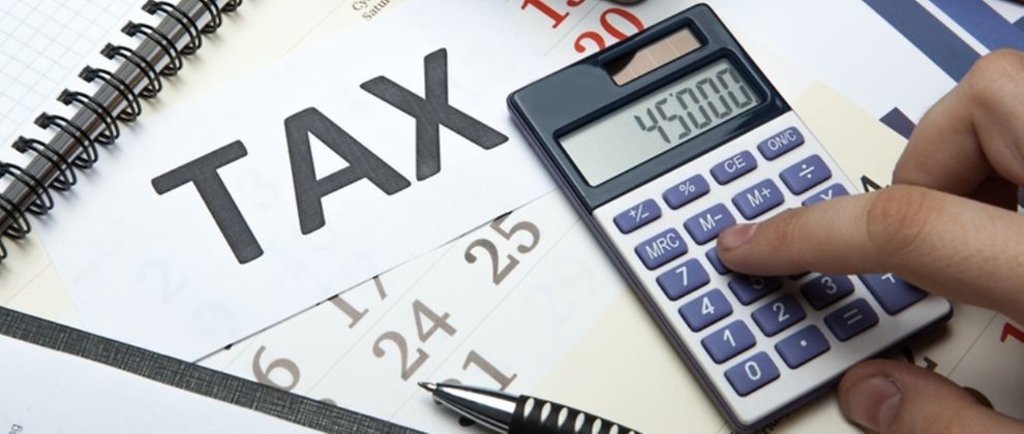
FG proposes 5% tax on betting, telecoms services
As part of a new plan to restructure Nigeria’s tax framework, the Federal Government proposes a 5% excise levy on telecommunications services, gaming, and betting operations.
The bill, titled “A Bill for an Act to Repeal Certain Acts on Taxation and Consolidate the Legal Frameworks relating to Taxation and Enact the Nigeria Tax Act to Provide for Taxation of Income, Transactions, and Instruments, and Related Matters,” was dated October 4, 2024, and obtained from the National Assembly.
An analysis of the draft legislation, the bill seeks to impose excise duty on services such as telecoms, gaming, gambling, lotteries, and betting in Nigeria.
A section of the bill read, “The amount of an excisable transaction is the amount chargeable for the service by the service provider, both in money or money’s worth.
READ ALSO:
- Stop brainwashing members with ‘sowing seed’, Kumuyi tells preachers
- Supreme Court will resolve Rivers Assembly crisis – Wike
- ‘Frequent collapse of national grid an embarrassment’
“Services, including telecommunications, gaming, gambling, betting, and lotteries, however described, provided in Nigeria shall be charged with duties of excise at the rates specified under the Tenth Schedule to this Act in a manner as may be prescribed by the Service.”
A breakdown of the excise duty structure in the bill reveals that telecom services, including postpaid and prepaid services regulated by the Nigerian Communications Commission, will be subject to a 5% charge.
The same charge will be applicable to gaming, gambling, betting, and lottery services.
The bill also establishes criteria for currency transactions, stating that any discrepancy between the current Central Bank of Nigeria exchange rate and the actual transaction rate will be subject to excise duty.
The new tax regime is part of the government’s attempt to increase non-oil revenue despite fiscal constraints. With substantial expansion in the telecom and betting sectors, authorities are aiming to broaden their revenue source.
The measure also attempts to ensure that currency trades are in line with official CBN rates, with any excess charged as excise duty via a self-assessment methodology.
FG proposes 5% tax on betting, telecoms services
Business
PH refinery: 200 trucks will load petroleum products daily, says Presidency

PH refinery: 200 trucks will load petroleum products daily, says Presidency
No fewer than 200 trucks are set to load petroleum products at the government-owned Port Harcourt Refinery, the presidency has said.
A presidential spokesperson, Sunday Dare, made this known in a statement through his official X handle on Tuesday.
Newstrends had reported that the Nigerian National Petroleum Company on Tuesday announced that Port Harcourt Refinery has resumed operations and crude oil processing after years of inactivity.
READ ALSO:
- US-based Nigerians get 30-year sentence over $3.5m romance scam
- 4 Nigerians arrested in Libya for alleged drug trafficking, infection charges
- BREAKING: Port Harcourt refinery begins operation
Reacting, Dare said, “200 trucks are expected to load products daily from the refinery, Renewing the Hopes of Nigeria.”
He added that “the Port Harcourt refinery has two wings.
“The Old Refinery comes on stream today with an installed production capacity of 60, 000 barrels per day of crude oil.”
PH refinery: 200 trucks will load petroleum products daily, says Presidency
Business
Breaking: CBN increases interest rate to 27.50%

Breaking: CBN increases interest rate to 27.50%
The Central Bank of Nigeria (CBN) has raised the lending interest to 27.50 per cent from 27.25 per cent.
This latest increase in the Monetary Policy Rate came after a meeting of the Monetary Policy Committee (MPC) of the Central Bank of Nigeria (CBN) on Monday and concluded Tuesday.
The Monetary Policy Rate measures the benchmark interest rate.
The CBN Governor, Yemi Cardoso, announced this in Abuja on Tuesday after the MPC meeting, last for the year, held at the apex bank’s headquarters.
He said the MPC voted unanimously to raise the MPR by 25 basis points from 27.25% to 27.50%; and retain the Cash Reserve Ratio (CRR) at 50% for Deposit Money Banks and 16% for Merchant Banks.
The CBN governor also said the MPC retained the Liquidity Ratio (LR) at 30% and Asymmetric Corridor at +500/-100 basis points around the MPR.
Business
Nigeria’s unemployment rate dropped to 4.3% in Q2 – NBS
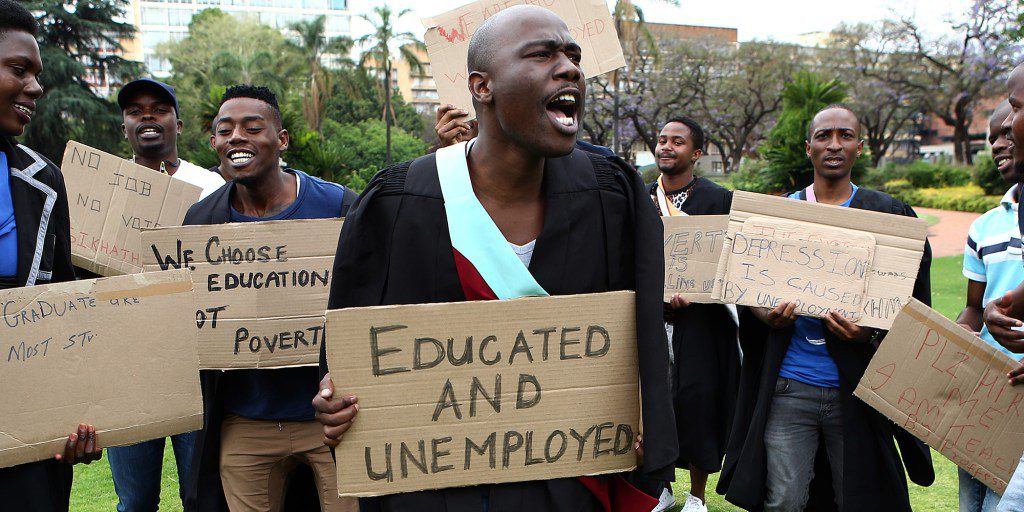
Nigeria’s unemployment rate dropped to 4.3% in Q2 – NBS
Nigeria’s unemployment rate stood at 4.3 per cent in the second quarter of 2024, the National Bureau of Statistics (NBS) has said in its latest report.
The report released on Monday said the unemployment rate decreased compared to the 5.3 per cent recorded in the Q1 of 2024.
The NBS defined the unemployment rate as the share of the labour force (the combination of unemployed and employed people) who are not employed but actively searching and are available for work.
“The unemployment rate for Q2 2024 was 4.3%, showing an increase of 0.1 percentage point compared to the same period last year,” the report stated.
“The unemployment rate among males was 3.4% and 5.1% among females.
“By place of residence, the unemployment rate was 5.2% in urban areas and 2.8% in rural areas. Youth unemployment rate was 6.5% in Q2 2024, showing a decrease from 8.4% in Q1 2024.”
Report also said the unemployment rate among persons with post-secondary education was 4.8 per cent; 8.5 per cent among those with upper secondary education, 5.8 per cent for those with lower secondary education, and 2.8 per cent among those with primary education in Q2 2024.
Employment rate – 76%
The report showed that the employment-to-population ratio, which measures the number of employed workers against the total working-age population, increased to 76.1 per cent in Q2 2024.
“In Q2 2024, 76.1% of Nigeria’s working-age population was employed, up from 73.1% in Q1 2024,” the report stated.
Self-employment – 85.6%
The report further showed that Nigeria’s labour market saw a notable shift as the proportion of self-employed individuals increased in Q2 2024.
It stated, “The proportion of persons in self-employment in Q2 2024 was 85.6%.”
-

 metro11 hours ago
metro11 hours agoBREAKING: Port Harcourt refinery begins operation
-

 Business2 days ago
Business2 days agoJust in: Dangote refinery reduces petrol price for marketers
-

 metro1 day ago
metro1 day ago40-foot container falls on car in Lagos
-

 Politics2 days ago
Politics2 days ago2027: Lagos Speaker, Obasa joins gov race, may battle Seyi Tinubu, others
-

 Politics1 day ago
Politics1 day agoLagos 2027: Seyi Tinubu campaign team releases his life documentary
-

 International1 day ago
International1 day agoTrump to sack 15,000 transgender officers from U.S. military: Report
-

 Entertainment1 day ago
Entertainment1 day agoPolygamy best form of marriage for Africa – Okey Bakassi
-

 metro1 day ago
metro1 day agoPolicewoman dismissed in Edo threatens to kill children, commit suicide



